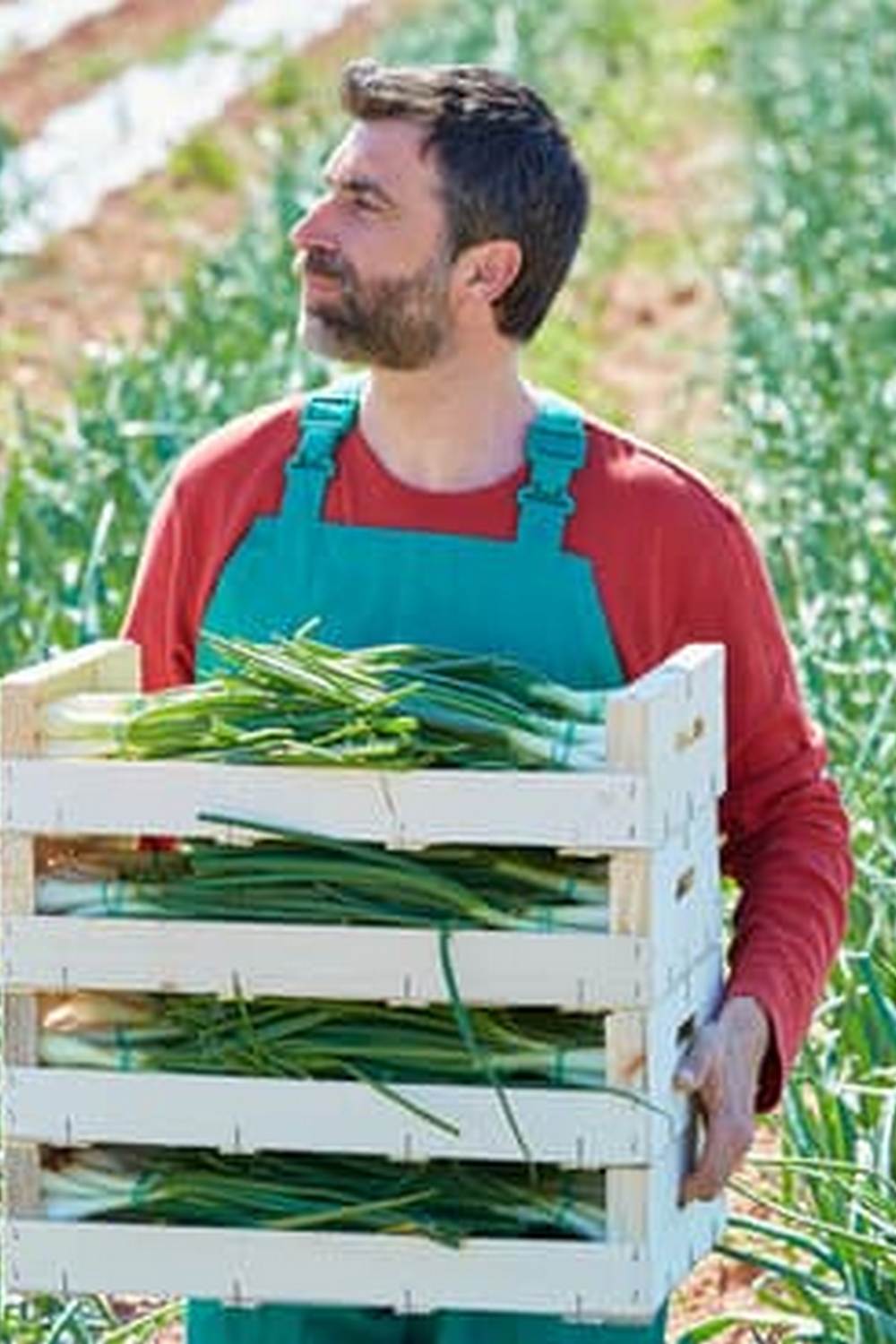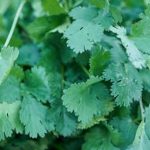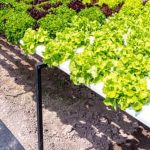Is ACQ treated pine safe for vegetable gardens? This question often arises among gardeners and homeowners looking to build raised beds or structures for their vegetable gardens. ACQ (alkaline copper quaternary) treated pine is a type of wood that has been treated with copper compounds to prevent decay and insect damage. It is commonly used in outdoor construction projects, including garden beds, fences, and decks.
ACQ treated pine offers several benefits for use in vegetable gardens. It is resistant to rot, decay, and termites, which can prolong the lifespan of garden structures. This type of treated wood is also readily available at most hardware stores, making it a convenient option for DIY garden projects. Additionally, ACQ treated pine is more environmentally friendly than other types of chemical treatments, such as chromated copper arsenate (CCA).
However, there are some risks and concerns associated with using ACQ treated pine in vegetable gardens. The chemicals used in the treatment process can leach out over time and may potentially be absorbed by plants. This raises questions about the safety of consuming vegetables grown in contact with ACQ treated wood. Gardeners should take precautions to minimize direct contact between the treated wood and soil where edible plants are grown to reduce any potential risks.
Benefits of Using ACQ Treated Pine in Vegetable Gardens
ACQ treated pine is a type of wood that has been impregnated with alkaline copper quaternary, a preservative that helps protect it from decay and insects. In vegetable gardens, ACQ treated pine is commonly used for constructing raised beds, trellises, and other structures due to its durability and longevity. One of the main benefits of using ACQ treated pine in vegetable gardens is its resistance to rot, which can help prolong the lifespan of garden beds and other structures.
In addition to its resistance to decay, ACQ treated pine is also less likely to be damaged by pests such as termites and carpenter ants compared to untreated wood. This can help ensure that vegetable garden structures remain intact and stable for years to come. Furthermore, ACQ treated pine is readily available at most home improvement stores and is more affordable than alternative materials like cedar or redwood.
While there are many benefits to using ACQ treated pine in vegetable gardens, some concerns have been raised about the safety of this material in garden settings. Some studies suggest that the chemicals used in pressure-treating wood, including ACQ treated pine, may leach into the surrounding soil over time.
This has led to questions about whether these chemicals could potentially harm plants or contaminate edible crops grown in raised beds made from ACQ treated pine. Despite these concerns, research on the specific risks of using ACQ treated pine in vegetable gardens remains limited and inconclusive.
| Benefits of Using ACQ Treated Pine | In Vegetable Gardens |
|---|---|
| Resistance to decay | Durable and long-lasting |
| Less susceptible to pest damage | More affordable than alternative materials |
Risks and Concerns Associated With Using ACQ Treated Pine in Vegetable Gardens
Potential Risks of ACQ Treated Pine in Vegetable Gardens
While ACQ treated pine offers benefits such as resistance to decay and insects, there are also concerns regarding its use in vegetable gardens. One major issue is the leaching of chemicals from the treated wood into the soil over time.
This can potentially expose plants to harmful substances, affecting their growth and the safety of the produce consumed. The chemicals used in the treatment process, such as copper and quaternary ammonium compounds, may pose risks to both plant health and human health.
Environmental Impact Concerns
Another significant concern associated with using ACQ treated pine in vegetable gardens is its environmental impact. The leaching of chemicals from the wood into the surrounding soil can contaminate groundwater and nearby ecosystems. This pollution can have long-lasting effects on biodiversity and soil quality, impacting not only the immediate garden area but also larger areas within the ecosystem. Additionally, there is a risk of these chemicals spreading beyond the garden boundaries through runoff or seepage.
Regulatory Guidelines and Guidelines for Safe Use
Given these risks and concerns, it is essential for gardeners considering ACQ treated pine for their vegetable gardens to adhere to regulatory guidelines and best practices for safe use. Always verify that the treated wood used is specifically approved for contact with edible plants. When handling ACQ treated pine, wear appropriate protective gear such as gloves and a mask to minimize exposure to chemical residues.
Furthermore, regularly monitor soil pH levels and plant health to detect any potential issues early on. Conducting proper maintenance and avoiding direct contact between the treated wood and edible parts of plants can help mitigate some of these risks associated with using ACQ treated pine in vegetable gardens.
By carefully considering these risks and implementing precautionary measures, gardeners can make informed decisions about using ACQ treated pine in their vegetable gardens while keeping both plant health and human safety in mind.
Research Findings on the Safety of ACQ Treated Pine in Vegetable Gardens
ACQ treated pine is a type of wood that has been pressure-treated with alkaline copper quaternary compounds, making it resistant to decay and insects. This treated timber is commonly used in various outdoor construction projects, including vegetable gardens. One of the main benefits of using ACQ treated pine in vegetable gardens is its durability, as it can withstand harsh environmental conditions and last for many years without rotting or decaying.
However, there are also concerns regarding the safety of using ACQ treated pine in vegetable gardens. The chemicals used in the treatment process can leach into the surrounding soil over time, potentially contaminating the plants and produce grown in the garden. Research studies have shown that these chemicals may pose risks to human health if ingested through consumption of vegetables grown in ACQ treated soil.
Despite these concerns, some research findings suggest that the risks associated with using ACQ treated pine in vegetable gardens are low if certain precautions are followed. For instance, lining the inside of raised beds with a plastic barrier can help prevent direct contact between the treated wood and the soil where vegetables are grown. Additionally, choosing non-edible plants to surround areas where ACQ treated pine is used can further reduce the risk of chemical contamination in vegetable gardens.
| Research Findings on Safety Concerns | Precautions |
|---|---|
| Chemicals from ACQ treatment can leach into soil | Use plastic barriers in raised beds |
| Potential risks to human health through ingesting treated produce | Avoid direct contact between wood and edible crops |
Alternatives to ACQ Treated Pine for Vegetable Garden Construction
When considering the safety of using ACQ treated pine in vegetable gardens, it is vital to explore alternative materials that can be utilized for garden construction. While ACQ treated pine has its benefits, some individuals may prefer to avoid the potential risks associated with using treated wood near their food source.
Cedar or Redwood
One popular alternative to ACQ treated pine is using cedar or redwood for vegetable garden construction. These types of wood are naturally resistant to rot and decay, making them durable options for raised beds or fencing. Additionally, cedar and redwood do not require chemical treatments like ACQ treated pine, alleviating concerns about chemical leaching into the soil.
Composite Materials
Composite materials, such as recycled plastic or composite wood, offer a sustainable and eco-friendly option for constructing vegetable gardens. These materials are long-lasting and require minimal maintenance compared to traditional wood options. While the initial cost may be higher, the longevity and sustainability of composite materials make them a viable alternative to ACQ treated pine.
Metal Raised Beds
For those looking for a modern and durable alternative to ACQ treated pine, metal raised beds can be an excellent choice. Metal beds are sturdy, long-lasting, and provide a sleek aesthetic to any vegetable garden space. With proper installation and maintenance, metal raised beds can withstand harsh weather conditions and offer a safe environment for growing vegetables without the worry of chemical exposure from treated wood.
By exploring these alternatives to ACQ treated pine for vegetable garden construction, individuals can make informed decisions about the materials they use in their gardening projects. Whether opting for natural wood like cedar or redwood, sustainable composite materials, or durable metal raised beds, there are plenty of safe options available for creating thriving vegetable gardens free from potentially harmful chemicals.
Tips for Safely Using ACQ Treated Pine in Vegetable Gardens
ACQ treated pine, also known as alkaline copper quaternary treated pine, is a type of wood that has been pressure-treated with a preservative to protect it from decay and insect damage. It is commonly used in various outdoor construction projects, including vegetable garden beds. However, many gardeners often wonder if ACQ treated pine is safe for use in their vegetable gardens.
When considering using ACQ treated pine in vegetable gardens, it’s important to weigh the benefits and risks associated with this material. Some of the benefits of using ACQ treated pine include its resistance to decay and insects, which can prolong the lifespan of your garden beds. Additionally, ACQ treated pine is readily available at most home improvement stores and is generally more affordable than other types of treated wood.
Despite its benefits, there are also some risks and concerns associated with using ACQ treated pine in vegetable gardens. The preservatives used in ACQ treated wood contain copper, which can leach into the soil over time and potentially harm plants or contaminate vegetables. This raises questions about whether it is safe to grow edibles in close proximity to ACQ treated pine.
To address these concerns and safely use ACQ treated pine in vegetable gardens, consider the following tips:
- Line the interior sides of the garden bed with a heavy-duty plastic barrier to prevent direct contact between the soil and the treated wood.
- Use a food-safe sealant on any exposed surfaces of the wood to minimize leaching of chemicals into the soil.
- Plant non-edible plants or flowers instead of vegetables directly next to the ACQ treated pine to reduce potential exposure to contaminants.
- Regularly monitor plant health for any signs of distress or contamination from using ACQ treated pine.
By following these tips and being mindful of potential risks, you can still enjoy the benefits of using ACQ treated pine in your vegetable garden while minimizing any negative impacts on plant growth and food safety.
Real-Life Examples of Vegetable Gardens Using ACQ Treated Pine
In real-life examples, many vegetable gardeners have opted to use ACQ treated pine for various structures and raised beds within their gardens. The use of ACQ treated pine in vegetable gardens is a popular choice due to its durability, affordability, and ease of construction. Here are some instances of vegetable gardens incorporating ACQ treated pine:
- One common application of ACQ treated pine in vegetable gardens is the construction of raised beds. These raised beds provide a designated area for planting vegetables, improve drainage, and help prevent soil compaction.
- Some gardeners also use ACQ treated pine to build trellises for climbing plants such as tomatoes, cucumbers, or pole beans. Trellises help maximize growing space and provide support for these plants to thrive.
- In addition to raised beds and trellises, ACQ treated pine can be used to create pathways, borders, or even pergolas in vegetable gardens. These structures not only enhance the aesthetic appeal of the garden but also contribute to efficient organization and access for maintenance tasks.
Overall, these real-life examples highlight the versatility and practicality of using ACQ treated pine in vegetable gardens. While there are certain risks associated with its use, proper precautions can be taken to ensure the safety of both the gardeners and the crops. By following recommended guidelines and implementing best practices when working with ACQ treated pine, gardeners can enjoy the benefits it offers while minimizing potential harm to their vegetable gardens.
Conclusion
In conclusion, the question of whether ACQ treated pine is safe for vegetable gardens is one that requires careful consideration. While ACQ treated pine offers benefits such as resistance to decay and pests, there are also valid concerns regarding its potential leaching of chemicals into the soil and water, which could affect the health of plants and those consuming the vegetables grown in such gardens.
Based on research findings, it is recommended to exercise caution when using ACQ treated pine in vegetable gardens. It is advisable to line the inside of raised beds with a protective barrier to minimize direct contact between the treated wood and the soil. Additionally, regularly testing the soil for any chemical imbalances or contaminants is crucial in ensuring the safety of your produce.
Ultimately, if you choose to use ACQ treated pine in your vegetable garden, be sure to follow best practices for handling and installation. Consider alternatives such as naturally rot-resistant woods like cedar or redwood, or non-wood materials like composite lumber. By staying informed and taking necessary precautions, you can enjoy a fruitful and safe gardening experience without compromising the well-being of your plants or yourself.
Frequently Asked Questions
Is ACQ Treated Wood Safe for Vegetable Gardens?
ACQ treated wood, which stands for Alkaline Copper Quaternary, is generally considered safe for vegetable gardens. The chemicals used in the treatment do not usually leach into the soil in significant amounts that could harm plants or people.
Is ACQ Treated Pine Safe?
ACQ treated pine is safe to use in most applications, including vegetable gardens. However, it is important to note that some individuals may have sensitivities to the chemicals used in the treatment process, so caution should be taken.
Is Lowe’s Pressure Treated Wood Safe for Gardens?
Lowe’s pressure treated wood is typically safe for gardens as well. Like other pressure-treated woods, it undergoes a process that helps protect it from decay and insects. As long as the wood is not in direct contact with edible parts of the plants, it should be safe to use.

If you’re looking to get into vegetable gardening, or are just looking for some tips on how to make your current garden better, then you’ve come to the right place! My name is Ethel and I have been gardening for years. In this blog, I’m going to share with you some of my best tips on how to create a successful vegetable garden.





